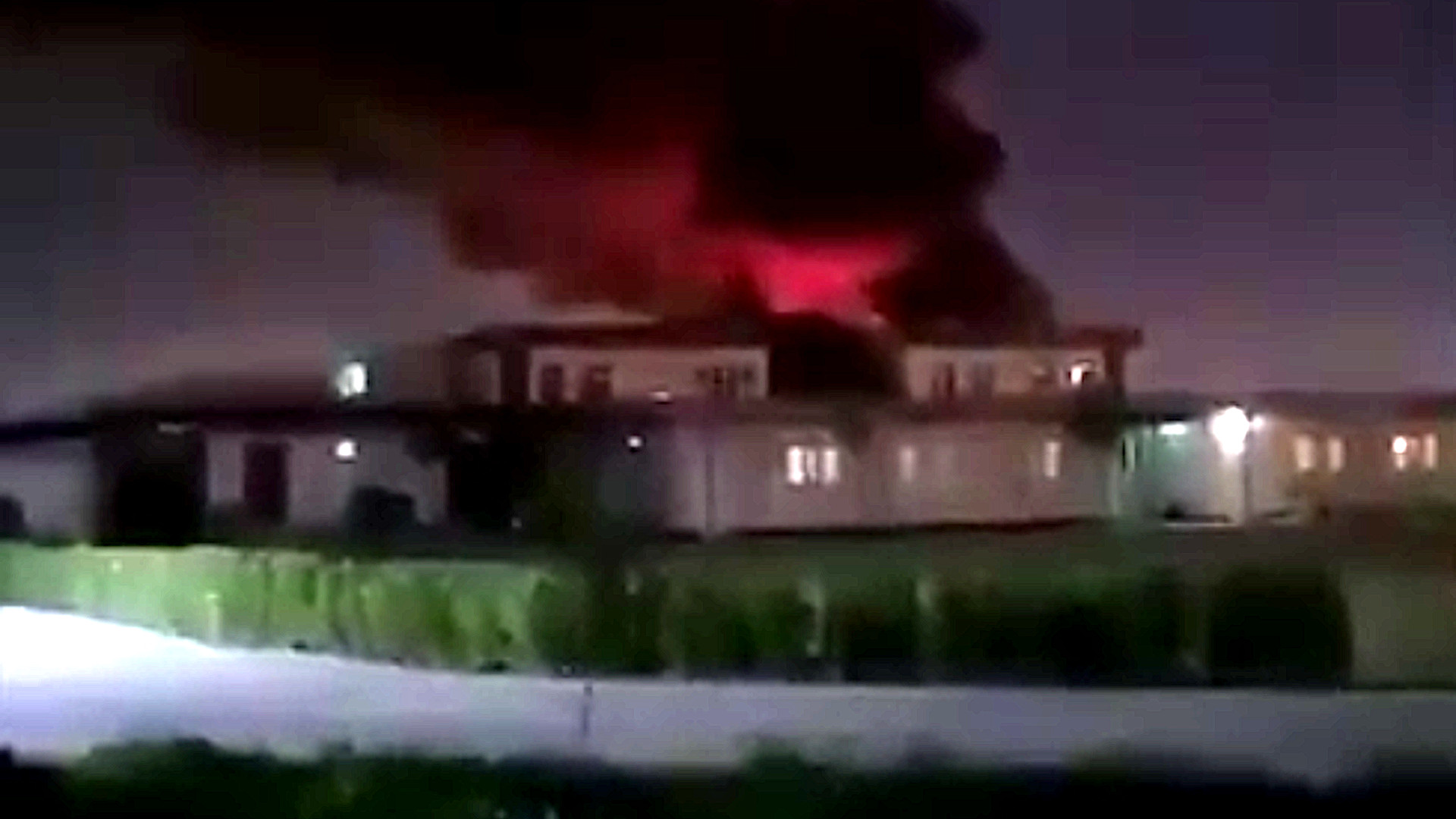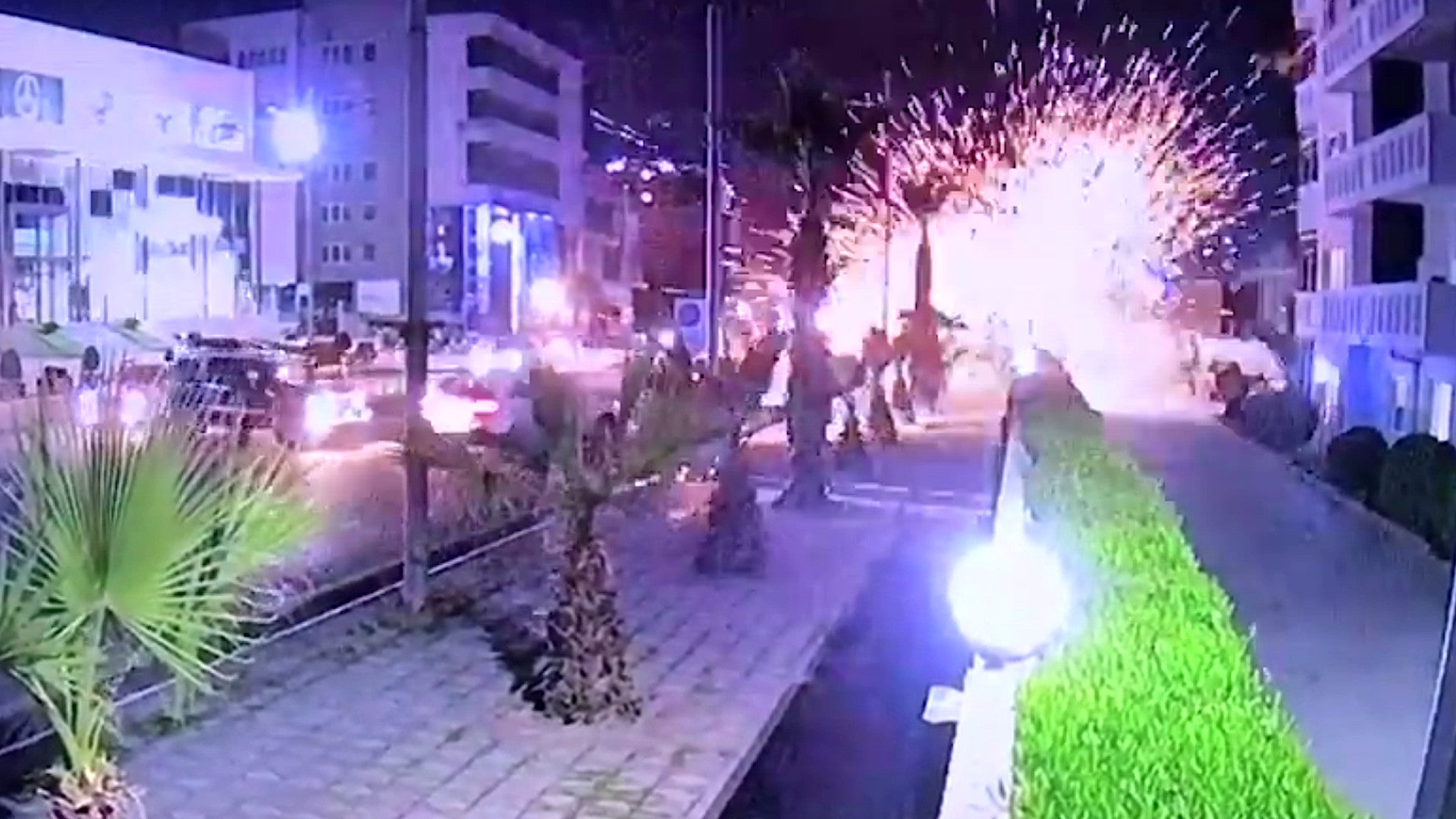Details are still coming in, but the U.S.-led coalition in Iraq says that a civilian contractor supporting its operations was killed in a rocket attack on a section that its forces operate from at Erbil Airport in Iraq’s semi-autonomous northern Kurdish region. A U.S. servicemember and five other contractors were also injured in the incident.bega
U.S. Army Colonel Wayne Marotto, the chief spokesperson for Combined Joint Task Force-Operation Inherent Resolve (CJTF-OIR), the official name of the U.S.-led coalition that is ostensibly fighting ISIS in Iraq and Syria, confirmed the casualties in a Tweet on Feb. 15, 2021.

Videos that emerged on social media after the attack began showed what appeared to be a large fire at the airport, but the extent of the damage is unclear at this time. It’s also not clear if U.S. Centurion Counter-Rocket, Artillery, Mortar (C-RAM) systems, or any other defenses, were employed in an attempt to knock down any of the incoming projectiles.
An Iranian-backed militant group Saraya Awliya Al Dam, or the Avengers of Blood Companies, has already claimed responsibility for the attack on Erbil Airport, which was reportedly just one a number of sites hit by rockets tonight. There are unconfirmed reports that the Chinese consulate in Erbil was also hit, among other sites, with a local security guard being injured.
Though Saraya Awliya Al Dam said its primary target tonight was the “U.S. military base” in Erbil, it also threatened more attacks on Iraqi Kurdistan and the incident comes amid a number of geopolitical crises in the country.
The rockets notably began to fall an hour after another Iranian-backed group, Ashab Al Kahf, had issued a statement threatening attacks on Erbil, as well as other locations in northern Iraq. That threat comes a complex situation developing in northern Iraq, where a Turkish intervention has prompted the anger of certain Iraqi groups, including Ashab Al Kahf, over violating of the country’s sovereignty. However, that intervention is targeting the Kurdish Workers’ Party, a Kurdish militant group better known by the acronym PKK, which has also sparred with Iranian-backed militias in the past. The PKK recently executed 13 Turkish nationals it had been holding hostage, reportedly including military personnel and intelligence operatives. Their bodies were discovered after Turkey launched a new campaign against the Kurdish group last week.
At the same time, relations between authorities in Baghdad and the semi-autonomous Kurdish Regional Government (KRG) have been strained in recent years. Though unconfirmed, Kurdish officials in Iraq reportedly said that the rockets had been fired from locations in Kirkuk province, which the KRG ceded to the country’s central authorities after fighting in 2017. The KRG has also been an important long-time U.S. partner in Iraq.
Beyond that, Saraya Awliya Al Dam and Ashab Al Kahf have stepped up operations, as have a host of other Iranian-backed groups, targeting the U.S. coalition in the last six months or so. This is all ostensibly in retaliation for the U.S. military’s killing of Iranian General Qassem Soleimani outside of Baghdad International Airport in January 2020. At the time, Soleimani was head of the Quds Force, the arm of Iran’s powerful Islamic Revolutionary Guard Corps (IRGC) charged with coordinating activities with foreign proxies and otherwise conducting external operations.
In the lead up to the first anniversary of Soleimani’s death, and immediately afterward, Iranian officials and Iranian proxies around the Middle East, especially in Iraq, issued numerous public threats, including directly against former President Donald Trump. Targeting the areas of Erbil Airport that host U.S.-led coalition forces would be well in line with these groups’ calls for vengeance.
All of this also comes as U.S. President Joe Biden’s administration is seeking some kind of rapprochement with Iran, including a restoration of a controversial deal over that country’s nuclear programs. The Trump administration pulled out of that multi-national agreement in 2018 and Iran has been steadily violating more and more of its terms in an apparent attempt to force concessions from the remaining parties, especially the United Kingdom, France, and Germany, as well as the United States. Biden has said he will not offer any kind of sanctions relief to Iranian authorities until they return to full compliance with the so-called Iran Deal.
No matter what, the death of a contractor employed by the U.S.-led coalition, as well as the other coalition injuries, could, at best, complicate these diplomatic efforts. Iranian-backed militias killing a coalition contractor in late 2019 precipitated a series of events that culminated in the killing of Qassem Soleimani and Iran launching unprecedented ballistic missile strikes at bases housing American troops in Iraq, including Erbil Airport, in retaliation. Those missile strikes caused more than 100 American casualties, most involving traumatic brain injuries.
Rocket attacks against U.S. interests in Iraq, of course, are not uncommon and the U.S. has retaliated against Iranian-backed militias since January 2020 without nearly the same repercussions.
It remains to be seen how the Biden administration will respond to this latest deadly attack in Iraq.
We will continue to update this story as more information becomes available.
UPDATE: 7:50 PM EST
The U.S.-led coalition and other U.S. officials have said that the contractor who died in this rocket attack was not Iraqi and was also not a U.S. citizen, but has yet to release any additional details.
KRG authorities have also released pictures of what appear to be launchers for 107mm rockets, concealed inside a civilian vehicle, which were used to carry out this attack. There are still some rockets in the launch tubes, indicating that some of them did not function as intended. A total of 14 rockets were reportedly fired at Erbil.
UPDATE: 10:10 PM EST
U.S. Secretary of State Antony Blinken has issued the following statement:
We are outraged by today’s rocket attack in the Iraqi Kurdistan Region. Initial reports indicate that the attacks killed one civilian contractor and injured several members of the Coalition, including one American service member and several American contractors. We express our condolences to the loved ones of the civilian contractor killed in this attack, and to the innocent Iraqi people and their families who are suffering these ruthless acts of violence. I have reached out to Kurdistan Regional Government Prime Minister Masrour Barzani to discuss the incident and to pledge our support for all efforts to investigate and hold accountable those responsible.
Contact the author: joe@thedrive.com
